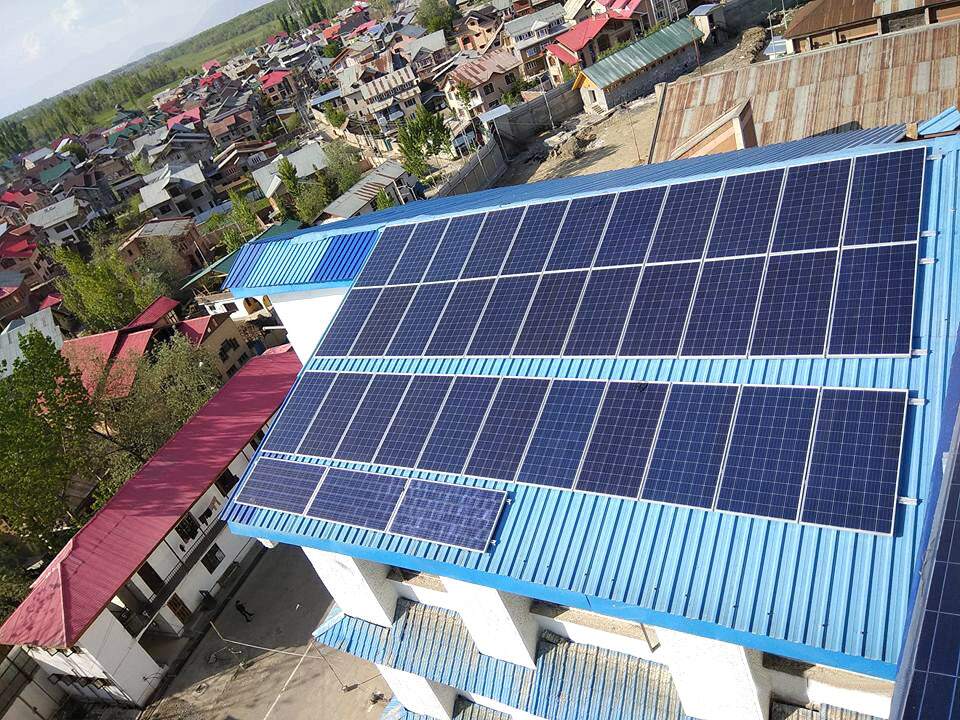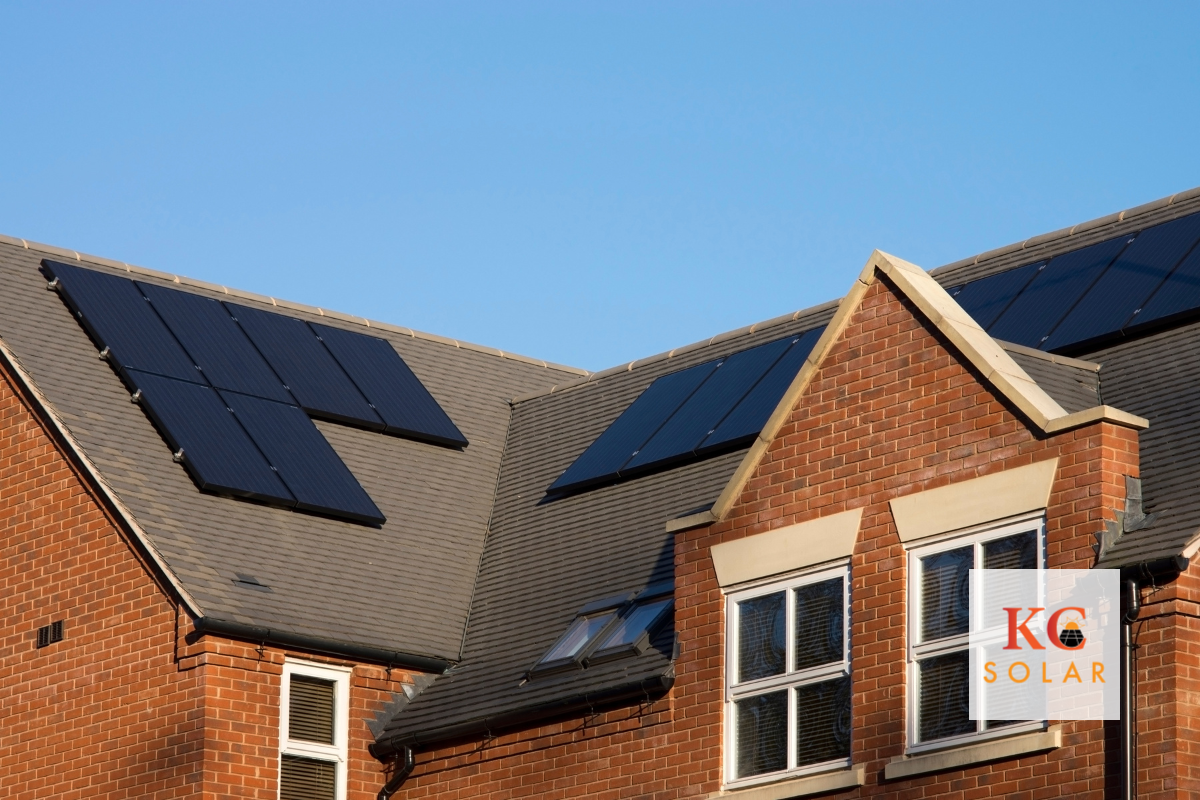
The Importance of Choosing a Reliable Solar Company
How to choose the best and most reliable solar company in the world? Solar energy has become a well-liked and sustainable option for both businesses and homes as the globe shifts to renewable energy sources. In addition to delivering premium solar panels, the top solar firm makes sure that their systems satisfy their customers' energy demands and give long-term financial and environmental advantages.
Installing solar power systems can boost property values, cut carbon footprints, and drastically minimize electricity costs. It can be difficult to pick the best solar supplier among the various options available, though. The finest solar businesses to choose from, what to look for in terms of service, and why solar energy is a wise investment for your house or company will all be covered in this guide.
What Qualifies the Best Solar Company?

There is more to selecting the finest solar business than just price when it comes to solar systems. Finding a trustworthy partner that provides premium solar panels, first-rate installation services, and outstanding post-purchase assistance is key. The following are the main characteristics of the top solar companies:
1. Reviews From Customers and Reputation
When choosing a solar energy provider, one of the most crucial factors is the company's reputation. Examine user reviews and ratings on independent websites like Trustpilot, Yelp, and Google. Positive reviews from pleased clients show that the business has a history of providing excellent service and high-quality solar power solutions. Additionally, be sure to see if the business has a good reputation for customer satisfaction and problem-solving.
Read Also: Green Energy Solutions: A Comprehensive Overview
In addition to offering dependable maintenance and repair services, a reputable solar provider will have experience managing different kinds of installations. Choose a business that has established a solid reputation for professionalism, high-quality products, and attentive customer service throughout the years.
2. Knowledge and Proficiency
The effectiveness and dependability of solar energy systems are greatly influenced by experience. The top solar businesses are prepared to manage the particular requirements of various properties because they have years of experience in the solar installation sector. Skilled businesses are able to optimize solar systems according to the customer's energy requirements, roof structure, and particular location.
Seek certifications and associations with industry standards, such as the Solar Energy Industries Association (SEIA) or the North American Board of Certified Energy Practitioners (NABCEP). These accreditations show that the business upholds strict performance and quality requirements, guaranteeing that you will receive the greatest solar solutions.
3. Product and Technology Quality
The caliber of the items offered by the top solar firm must be taken into account. Not every solar panel is made equally. The most robust and effective panels are made by reputable companies and use cutting-edge solar technology. High-efficiency solar panels that deliver optimum performance and dependability over an extended period of time are offered by the top solar suppliers.
Additionally, the solar company should offer a variety of options, such as thin-film, polycrystalline, and monocrystalline solar panels, to meet your unique demands. Depending on variables like budget, roof space, and energy output, each style offers advantages.
4. Clear Financing Options and Pricing

The cost is one of the most important factors to take into account when establishing a solar power system. The top solar businesses have clear prices with no additional costs. A thorough estimate that accounts for installation, equipment, permits, and other associated costs should be requested.
Read Also: How to Halve the Cost of Residential Solar in the US?
Additionally, seek out solar firms that provide flexible financing choices for solar projects. Financing options, such as solar loans, leases, or Power Purchase Agreements (PPAs), can control the up-front expenses of setting up a solar energy system. This guarantees that switching to solar energy won't put a significant financial strain on you.
5. Warranty and Customer Service
The top solar companies are aware that long-term happiness depends on customer service and support. They provide comprehensive guarantees for the installation as well as the solar panels. Inverters are typically covered for 5–10 years, while solar panels typically have warranties of 20–25 years.
The business should offer prompt customer service that is accessible in addition to warranty coverage in case you require upkeep, repairs, or have inquiries concerning your solar energy equipment. Your system will operate effectively for many years if you choose a firm that offers dependable solar panel maintenance.
Why Is Solar Power the Way of the Future?
Using solar energy is a step toward ecological and independence from power in addition to lowering your electricity costs. Solar power systems are a wise investment for both residential and commercial premises for the following reasons:
1. Impact on the Environment
Making the switch to solar power lowers your carbon footprint. Solar panels create clean, renewable energy that doesn't release any hazardous gasses into the atmosphere, in contrast to conventional power produced from fossil fuels. Installing solar systems helps to lessen the effects of climate change and makes the globe cleaner and greener.
2. Financial Savings
Saving a lot of money on your electricity costs is one of the main advantages of having a solar power system. Your solar panels provide electricity at no further cost after the original installation has been paid for. You may even be able to sell any extra energy you generate back to the system and receive credits on your electricity bills if you generate more than you use.
Depending on energy consumption and regional incentives, the initial money spent in a solar energy system usually pays for itself in five to seven years. Over time, solar energy can result in significant savings.
3. A Rise in the Value of Real Estate
Solar-paneled homes typically fetch a higher price when sold. Buyers are willing to pay more for homes with solar power systems, and there is a growing demand for energy-efficient homes. Long-term, installing solar panels is a wise investment because it can raise the value of your home.
4. Self-Sufficiency in Energy
You may have more control over how much electricity you use and lessen your dependency on the grid using solar energy. This is particularly helpful when there is a power outage since, depending on whether you have a battery storage system in place, your solar panels can still produce electricity even if the grid goes down.
5. Tax Credits and Government Incentives
To promote the use of solar power systems, some countries provide substantial tax credits and refunds. Homeowners in the US can deduct up to 26% of the cost of adding solar panels when they pay federal taxes thanks to the Federal Solar Tax Credit (ITC). State and local subsidies and incentives can further lower installation costs.
FAQ's- Most Reliable Solar Company
Which type of solar system is best?
Monocrystalline boards commonly have the most noteworthy proficiency and power limit. They can arrive at efficiencies of more than 22% and give north of 300 watts (W) of force limit. Many even surpass 400 W. Polycrystalline sunlight powered chargers, then again, seldom surpass 17% effectiveness and will quite often have lower wattages.
How many solar panels to power a house?
Key important points. A typical home necessities somewhere in the range of 17 and 30 sun powered chargers to completely counterbalance service bills with sun oriented. You can utilize our Sun powered Mini-computer to decide precisely the number of boards you that will require for your home.
What are the global top 3 solar companies?
Sun based organizations are in a development period, because of monetary motivators in the Expansion Decrease Demonstration of 2022. NextEra Energy, First Sun powered, and Enphase Energy are the main three sun oriented organizations, in view of market cap. List pioneer NextEra Energy had a market cap of $151.19 billion as of June 2024.
Should I leave my solar panels on all the time?
Sun powered chargers are intended to work ceaselessly during light hours, changing over daylight into power. Here's the reason it's ideal to keep them functional: Boost Energy Age: Sun powered chargers work most productively when they are consistently prepared to catch daylight.
What will replace solar panels?
This new sun oriented innovation depends on perovskite, a mineral with magnificent light retention properties. The key contrast is that perovskite cells can retain a more extensive scope of light frequencies than silicon cells, permitting them to produce additional energy from a similar measure of daylight.

